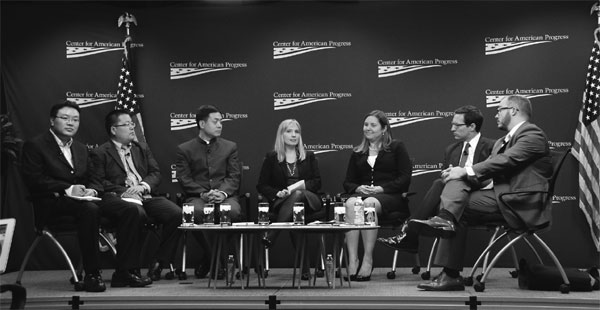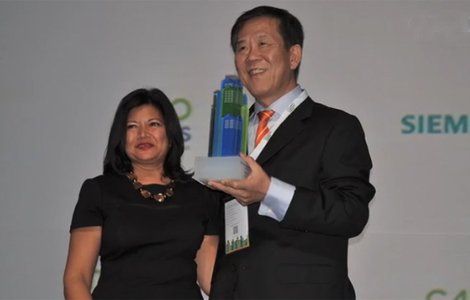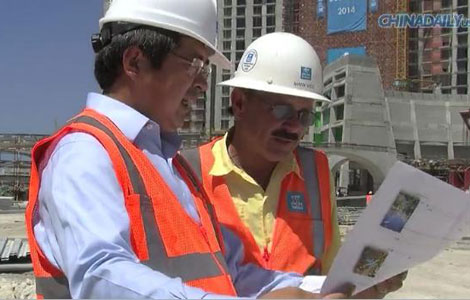Bilateral difficulties on manageable track
Updated: 2014-10-15 11:38
By Liu Chang in Washington(China Daily USA)
|
|||||||||
The US-China relationship is not about the two countries, but about the whole world.
So concluded a two-day dialogue that convened the top foreign policy experts of both US and China at the Center for American Progress (CAP) in Washington on Tuesday.
Experts said that fundamentally different frameworks exist between the two countries, but by identifying differences and focusing on divergence of interests and areas of cooperation, the US and China should be able to strengthen bilateral relationship.
As dialogue moderator, Melanie Hart, director of China policy at CAP, said the fact that experts can travel to one another's countries to have such deep conversation on the bilateral relations and talk frankly and sharply about concerns and suspicions shows that we are secure.
The discussion touched upon climate change, the South China Sea and the strategic new model of relations.
The climate change issue is of mutual interest for both countries. Joanna Lewis, associate professor of science, technology and international affairs at Georgetown University's Edmund A. Walsh School of Foreign Service, said that the fruits of cooperation in this area have panned out.
"There was lots of hope that the bilateral discussions taking place between the two countries on energy and climate change also spilled over to have a positive impact on international climate change negotiations," Lewis said.
Wang Ke, assistant director for the Program of Energy and Climate Economics of the School of Environment and Natural Resources at Renmin University of China, said that the cooperation on climate change in China involves a mixture of top-down and bottom-up approaches.
Wang explained that from the top-down, China views it as one of the priority issues in both countries' political agendas.
A series of helpful actions have been taken to help both sides understand constraints and concerns: US-China climate change working groups have been established; strategic and economic dialogues have deepened efforts to enhance cooperation; forums have been carried out to conduct political dialogues, which discuss the countries' domestic policies.
From the bottom-up level, universities and think tanks of both countries have institutional cooperation.
"These activities conducted by universities and think tanks are very helpful as they work at the local level to help organizations and local government and provide a good starting point for us to form mutual understanding," said Wang.
Ely Ratner, senior fellow and deputy director of the Asia-Pacific Security Program of the Center for a New American Security, said that what the two countries are looking for before President Barack Obama's APEC economic leaders' meeting in China in November is whether "both sides walk away believing their counterparts are committed to the US-China relationship, not in terms of reiterating slogans, but in terms of real government commitment."
Feitao Liu, deputy director of the Department of American Studies at the China Institute of International Studies, said that when looking at the development of bilateral relationship from the Sunnylands Summit to the present, "it is not so good as many people expected, but neither is it so bad as many people feared".
"None of our difficulties is unmanageable. We should constructively manage our differences," said Liu.
Wang Yiwei, professor of the School of International Relations at Renmin University, noted that the new type of major country relationship for the two countries is not a choice, but a necessity.
"The Sino-US relationship is not merely about the bilateral relationship, but about the future of the world. Our difficulty is the world's difficulty - it is happening in the US and China. For America, helping China is helping yourself, and vice versa," Wang said.
changliu@chinadailyusa.com
|
Experts from Washington and Beijing gathered on Tuesday at the Center for American Progress (CAP) in Washington to discuss bilateral relations. From left: Wang Ke of Renmin University of China; Feitao Liu of the China Institute of International Studies; Wang Yiwei, professor at Renmin University; Melanie Hart of CAP; Joanna Lewis of Georgetown University's Edmund A. Walsh School of Foreign Service and Ely Ratner of the Center for a New American Security. Liu Chang / China Daily |
(China Daily USA 10/15/2014 page3)
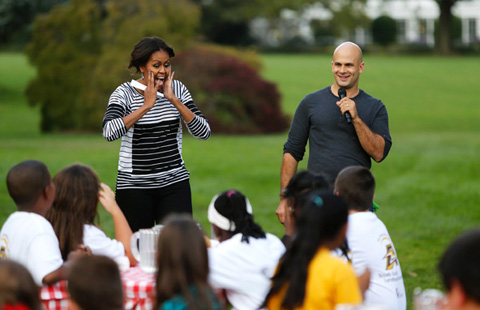
 White House also produces harvest joy
White House also produces harvest joy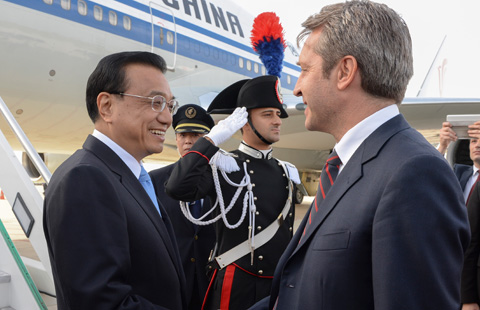
 Premier Li arrives in Rome for official visit to Italy
Premier Li arrives in Rome for official visit to Italy
 Universal to open theme park in Beijing
Universal to open theme park in Beijing
 Child bride 'marries' 37-year-old
Child bride 'marries' 37-year-old
 New York celebrates 70th Annual Columbus Day
New York celebrates 70th Annual Columbus Day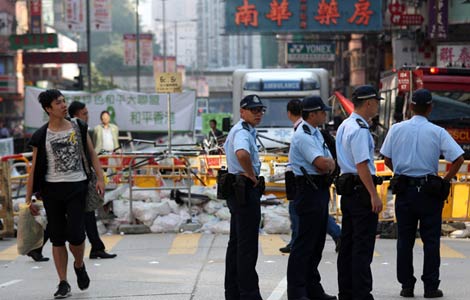
 HK police vow minimum force to remove protest road barriers
HK police vow minimum force to remove protest road barriers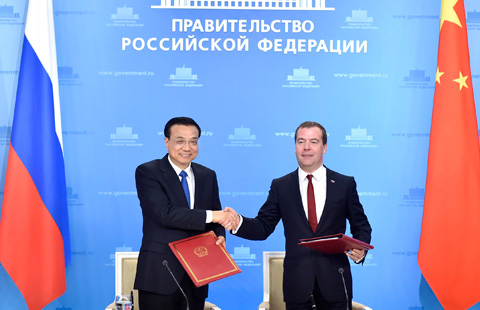
 China, Russia sign deals on energy, high-speed railways
China, Russia sign deals on energy, high-speed railways
 Future of US-China movies to be discussed
Future of US-China movies to be discussed
Most Viewed
Editor's Picks

|

|

|

|

|

|
Today's Top News
US offers $45m bounty for info on 8 terrorist leaders
Chinese, Italian companies sign $10b
Costco joins Alibaba's online portal
Ebola: Rapid-response team set up
NBA star dishes on 2008 Olympics and Yao Ming
Taiwan photographer depicts NYC on grand scale
Premier Li arrives in Rome for official visit to Italy
Chinese tourists rank US No 3 spot
US Weekly

|

|
